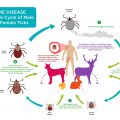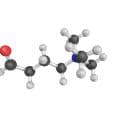Hypochlorhydria: low stomach acid tips and treatment

What are hypochlorhydria and low stomach acid
In this article, we will outline what hypochlorhydria means and give you low stomach acid tips to heal from this condition.
Your stomach is the core of your being so if you regularly suffer from an upset stomach or pain, it can be debilitating. What causes stomach pain and indigestion? More importantly, what can be done to heal an ailing stomach? And how does low stomach production can result in hair loss? Hydrochloric acid (HCL) plays a significant role in destroying harmful bacteria in the stomach. Secretion of HCL activates pepsinogen and converts it into the active enzyme pepsin.
Hypochlorhydria is a condition in which the sufferer does not produce enough hydrochloric acid (HCL) in their stomach. I’ve suffered from this condition too. The acid triggers the activation of pepsinogen, converting it into the active enzyme pepsin. A shortage of this gastric secretion can have a dramatic effect on your digestion and also on your health. Over time this may contribute to malnutrition, malabsorption of nutrients and inflammatory skin conditions.
Hypochlorhydria: Low levels of hydrochloric acid (HCL) adversely impact your digestion and health
Problems arise when the body doesn’t produce enough hydrochloric acid to do its job (hypochlorhydria). A shortage of hydrochloric acid can have an adverse impact on your digestion and ultimately your health. Untreated, hypochlorhydria can lead to malnutrition, leaky gut, malabsorption of nutrients, inflammatory skin conditions and auto-immune diseases.
The purpose of HCL is to kill harmful bacteria. With age, the levels of HCL usually decrease, and over 50% of those over the age 60 have low levels of HCL in the stomach.
Achlorhydria is even worse, in this condition the person’s body produces no acid at all.
Hypochlorhydria and its relation to Hair loss, malnutrition and autoimmune conditions
Hypochloridia is a condition where the stomach doesn’t produce enough stomach acids (HCL) Hydrochloric acid (HCL) plays a significant role in destroying harmful bacteria in the stomach. Secretion of HCL activates pepsinogen and converts it into the active enzyme pepsin.
Problems arise when the body doesn’t produce enough hydrochloric acid to do its job (Hypochlorhydria). A shortage of hydrochloric acid can have an adverse impact on your digestion and ultimately your health. Untreated, hypochlorhydria can lead to malnutrition, leaky gut, hair loss, malabsorption of nutrients, inflammatory skin conditions and other auto-immune conditions.
Anyone suffering from hypochlorhydria will eventually experience hair loss.
Hair is often sacrificed for the good of other parts of the body deemed more necessary for life and survival.
This might sound a little bit odd, but stomach acid is good for you. Without it, your health deteriorates and you could suffer from hair loss.
I’ve suffered from hypochlorhydria too and taking HCL plus Pepsin saved my digestion and made my protein meals more pleasurable. I believe my stomach and digestive system were most likely under high stress from the things I did when I was very young. I suffered from my eating disorders, and I purged too. My eating disorders lasted for 17 years.
Contributing factors to hypochlorhydria
Age can contribute to the onset of hypochlorhydria and it’s been estimated that 50% of individuals over the age of 60 experience low levels of HCL in the stomach.
Hypochlorhydria? take a look at the symptoms below
Symptoms of low stomach acid
If you suffer from all or several of these symptoms you could very well be dealing with low stomach acid.
Acid reflux
Bloating
Constipation
Diarrhoea
Gas
Indigestion
GERD
Nutrient deficiencies
Malabsorption
Undigested food in your stool
Unable to sleep (hours) after protein meals
Low stomach acid tips: treating Hypochlorhydria with natural supplements
One common recommendation for countering hypochlorhydria is taking hydrochloric acid supplements. These supplements mimic the acids naturally produced in your stomach and enable you to digest food again so that your symptoms subside.
To treat low stomach acid look into Betaine HCL, which helps individuals with low stomach acid and, according to all reports, it works very well. Just remember only to use Natural Betaine HCL that includes Pepsin too.
HypochlorhydriaUse HCL with Caution
As with anything that you’re putting into your body, use Betaine HCL carefully. If you miscalculate it, your symptoms could become worse.
If you’re already on an anti-inflammatory medicine, it is advised not to take HCL. This includes medications like aspirin, Ibuprofen, Indocin and prednisone corticosteroids. Also, avoid Motrin, Advil and other NSAIDs. These drugs weaken the lining of the gastrointestinal tract. Using an HCL on top of that could cause further damage and bleeding.
Your first steps towards healing, is finding a practitioner that fully understand low stomach acid. Ask questions and also ask for testimonials. Work with them to find the right solution for you.
If your stomach is too sensitive for HCL, explore the use of digestive bitters. They are natural, safe and they work towards returning your gastrointestinal tract to a healthy state.
Remember to take Betaine HCL supplements that contain Pepsin
To treat low stomach acid, you specifically need betaine HCL that contains pepsin. Some have pepsin and others don’t, so be sure to check so that you don’t go a futile journey with a supplement that lacks all of the enzymes you need.
Take HCL supplements with Protein to combat hypochlorhydria
Stomach acid is usually secreted naturally in when proteins have been consumed and aren’t needed when non-proteins are consumed. Use this information as a guide for when to take your betaine HCL with pepsin. To avoid stomach pains, only take betaine HCL when you have eaten protein.
Hydrochloric acid (HCL) plays a significant role in destroying harmful bacteria in the stomach. Secretion of HCL activates pepsinogen and converts it into the active enzyme pepsin.
Problems arise when the body doesn’t produce enough hydrochloric acid to do its job (hypochlorhydria). A shortage of hydrochloric acid can have an adverse impact on your digestion and ultimately your health. Untreated, hypochlorhydria can lead to malnutrition, leaky gut, malabsorption of nutrients, inflammatory skin conditions and auto-immune diseases.
Anyone suffering from malnutrition may eventually experience hair loss. Hair is often sacrificed for the good of other parts of the body deemed more necessary for life and survival. This might sound a little bit odd, but stomach acid is good for you. Without it, your health deteriorates.
Age can contribute to the onset of hypochlorhydria and it’s been estimated that 50% of individuals over the age of 60 experience low levels of HCL in the stomach.
Hypochlorhydria – My Story
Two years ago I discovered that I had hypochlorhydria. From a young age, I put my stomach and digestive system under a lot of stress from my eating disorders and purging.
Despite my healthy diet, my energy levels were still low and irregular. I was confused. After hours of research, I stumbled across some information about digestive enzymes and HCL. So, I decided to dig deeper on the subject.
I was shell-shocked – I’d visited so many doctors in the last decade, and not one of them came up with the idea that it could be hypochlorhydria. After all those years of doctoring, I had to diagnose myself!
How I recovered from hypochlorhydria
I read The Complete Book of Enzyme Therapy, by Dr Anthony J. Cichoke. I also read an interesting article by the guys at the SOD website. Soon after I began to implement the solutions they suggested, and I still follow it today.
Stomach acids play a vital role in the gastrointestinal tract. They are produced and secreted to keep you healthy. A stomach that doesn’t produce enough HCL will not make enough pepsin either. Without pepsin… your body cannot break proteins down into peptides. This process is CRITICAL for correct absorption.
Now I take an HCL supplement with Pepsin, which saved my digestion and made eating protein meals more enjoyable.
Are you suffering from low stomach acid?
Take a look at the symptoms below. If you suffer from all or several of these symptoms you could be dealing with HCL:
- Acid reflux
- Bloating
- Constipation
- Diarrhoea
- Gas
- Indigestion
- GERD
- Nutrient deficiencies
- Malabsorption
- Undigested food in your stool
- Unable to sleep (hours) after protein meals
One common recommendation for countering hypochlorhydria is taking hydrochloric acid supplements. These supplements mimic the acids naturally produced in your stomach and enable you to digest food again so that your symptoms subside.
To treat low stomach acid look into Betaine HCL, which according to research, works very well. Just remember to only use Betaine HCL that includes Pepsin too.
Hypochlorhydria treatment: measure HCL dosages
According to Dr Jonathan Wright’s book, the most effective dose for adults is 5 to 7 pills of 650 mg (with Pepsin) per meal that contains sufficient proteins. Adjust your daily dosage slowly and with caution.
Gauge how much betaine HCL you should take with each meal by calculating how much protein you’ve eaten. Your body secrets HCL based on the amount of protein that has been consumed, so do the same. With time, you’ll know exactly how much to take.
Finally, be slow, steady and patient when discovering HCL and its effects on your body and your system. By doing this, you can avoid unnecessary pain, setbacks and frustrations. It will also help you heal much faster.
What are the risks of taking hydrochloric acid HCL
An HCL or pepsin supplement is generally safe for most people, however, as with any treatment you should always seek medical advice before trying something new.
In his book “Why Stomach Acid is Good For You,” Dr Wright recommends taking the supplement under the guidance of a medical professional, especially if you are considered to be ‘high risk’. If you’re already taking medication such as aspirin, Indocin, ibuprofen (Motrin, Advil) or other NSAIDs, Betaine HCL can cause serious damage to the gut’s lining.
If you take proper precautions, betaine HCL can have a great impact on your overall health so please don’t be put off. Also, remember that the stomach is a very strong organ. I mean, it can pulverise your food like a rock crusher and the actual wall around it is 5mm thick! This means that it can easily handle strong acid, unlike the rest of your body’s cells which the acid would just burn straight through. Now can you understand how important it is to protect that lining in your gut?!
The right dosage of betaine HCL varies from person to person. It took some trial and error for me to work out how much I should be taking, so don’t be disheartened if it doesn’t work on you right away. GO SLOW.
Remember, the stomach is built to handle high amounts of acid, so don’t be scared to go higher in dosage if it doesn’t seem to be working for you.
Hypochlorhydria Treatment
Here’s a simple process to safely work out how much hydrochloric acid you should be taking:
- Have a meal with at least 15g of protein.
- Take one Betaine HCL pill (650mg or less) just before your meal.
- After you finish your meal keep a close eye on your body’s reactions. Things to look out for include: heaviness, burning, or other GI distress.
- Continue with the same dosage and meal for another two days. If by day three you don’t notice anything try increasing the dosage to 2 pills.
- Repeat this for another day and then try three pills.
- Continue to increase the number of pills taken with each meal until you notice some GI discomfort described in step #3.
- The discomfort means that your ideal Betaine HCL dosage is one pill less. For example, if you felt discomfort increasing the pills from 5 to 6, then five pills is the best dosage for you.
A few things to note, how much HCL do I need?
- A smallish snack or meal with very little protein won’t require as much Betaine HCL.
- You can lessen any pain or discomfort by drinking 8oz of water mixed with a teaspoon of baking soda.
- Natural methods can also work. As an alternative, try digestive bitters.
- Dr Wright mentions in his book that: “paradoxically adverse symptoms are most likely to occur in individuals with the lowest levels of stomach acid. This is because these people are most likely to have atrophic gastritis (a thinned-out stomach lining), which makes them much more sensitive to even small quantities of HCL than a normal, thicker stomach lining.” If this is the case for you, then try a smaller dosage pill of 350mg or less.”
- Don’t be scared if six Betaine HCL pills with lunch seems like a lot. The average amount needed is from 3,250-4,550mg per meal so a lot of people may need over 5,000mg for it to take effect.
Trust your gut
Remember, your stomach is built to take on a lot of acid so don’t be afraid and always listen to your gut. Are you burping, bloating or farting more than usual? This could be the sign you need to stop taking high dosages.
Just because you can take 20 pills, doesn’t mean you should. In fact, if your gut remains the same don’t keep popping pills in the hope that it will get better – seek some medical advice or try another test.
Measure HCL dosages with caution
According to Dr Jonathan Wright’s book, the most effective dose for adults is 5 to 7 pills of 650 mg (with Pepsin) per meal that contains sufficient proteins. Adjust your daily dosage slowly and with caution.
Gauge how much betaine HCL you should take with each meal by calculating how much protein you’ve eaten. Your body secrets HCL based on the amount of protein that has been consumed, you do the same. With time, you’ll know exactly how much to take.
Finally, be slow, steady and patient when discovering HCL and its effects on your body and your system. By doing this, you can avoid unnecessary pain, setbacks and frustrations. It will also help you heal much faster.
If you would like to read about the 55 hair loss causes, please ensure to check out this link.
Or to discover more information about optimal health and living a holistic lifestyle, click here.
Readings and products that helped me :
- The Complete Book of Enzyme Therapy, by Dr Anthony J. Cichoke
- Why Stomach Acid Is Good for You: Natural Relief from Heartburn, Indigestion, Reflux and GERD, by Dr Jonathan Wright
- HCL supplement with Pepsin from Solarey
- Betaine HCL pills from nature’s life
Empowering others via my anti-ageing wellness platform and holistic health books
I hope you liked this article about hypochlorhydria treatment. If you would like to learn more about my clean living or how I saved my life from being chronically ill and tired to the lively person I am today, ensure to check out other pages of this anti-ageing wellness platform.
Or if you want to discover my no BS guides on how to regain your health, hair and life, ensure to check out my holistic anti-ageing wellness books
After a frustrating decade of battling several chronic illnesses, I became disillusioned with the medical system and decided to take my health into my own hands.
Now, through my books and wellness platform, I want to empower people around the world do the same and regain their health, hair, life and beauty!
Let me help you right now!
Receive YOUR Welcome Kit that includes a wide range of topics, from simple and easy healthy brain recipes to clean living, ditching toxic chemicals with loads of practical advice that you can implement immediately
.




